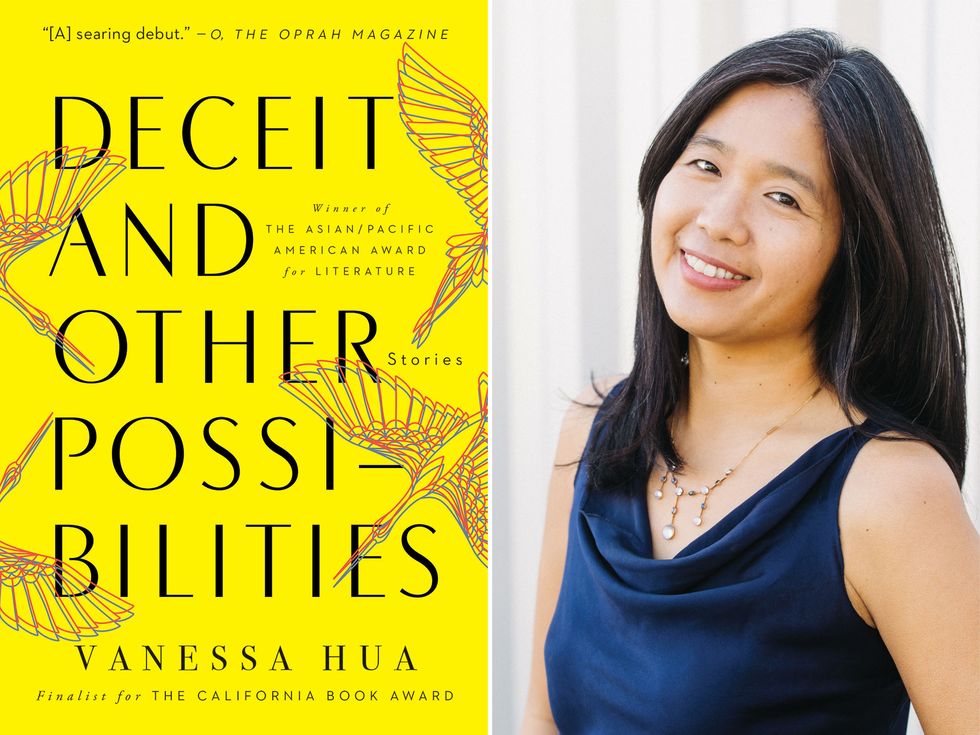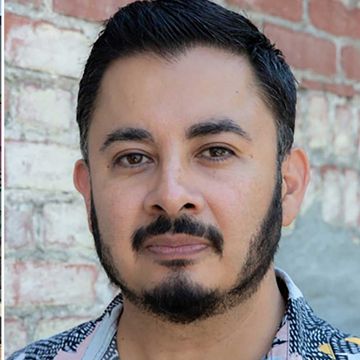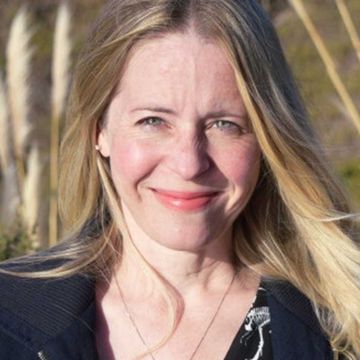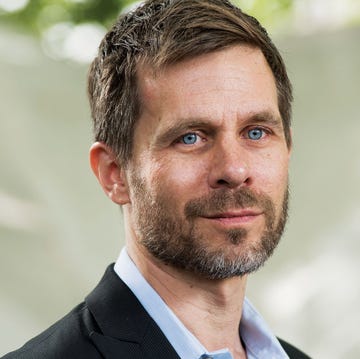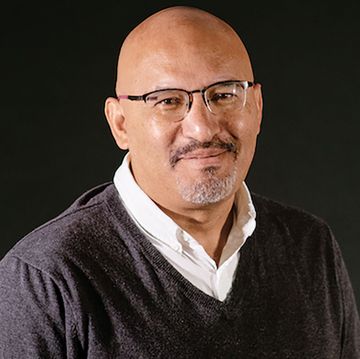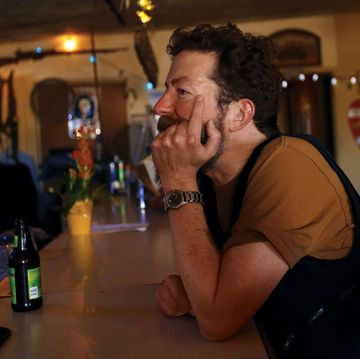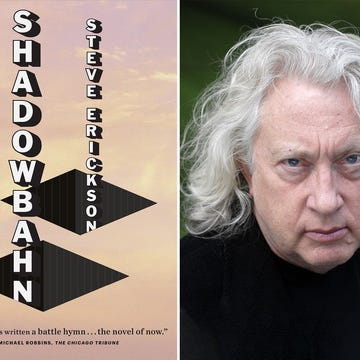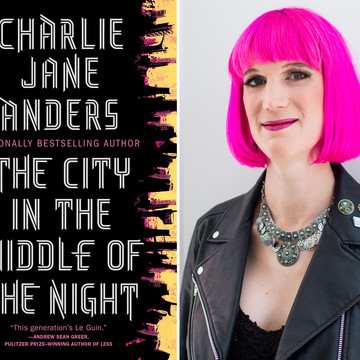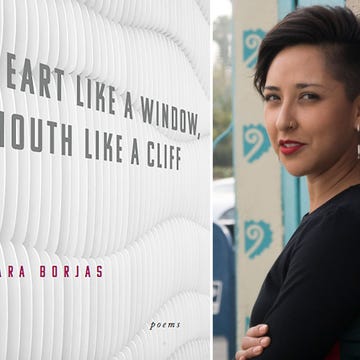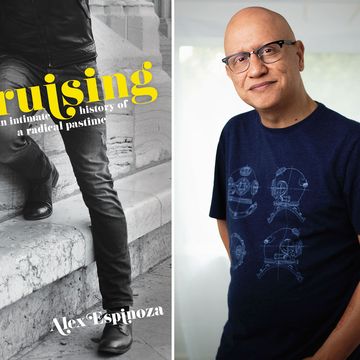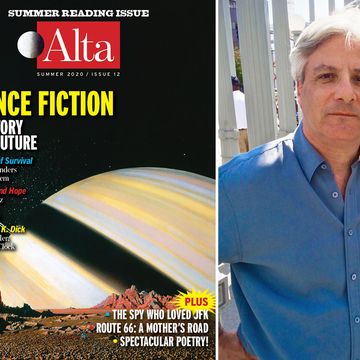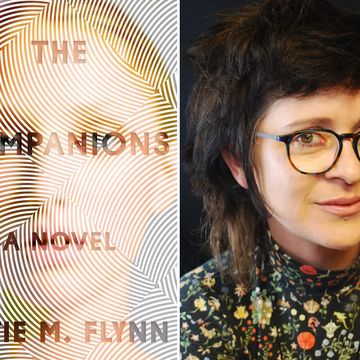In Deceit and Other Possibilities, Vanessa Hua’s characters find power in small deceptions. Constrained by cultural and familial expectations, they forge new identities in order to gain autonomy. The stories in Deceit, set largely in Northern California, illustrate the experiences of individuals in immigrant families: torn between their ancestral obligations and a desire to create a new self, many chafe under the weight of their families’ assumptions. Sometimes, deception becomes unwieldy. In this reissue of Hua’s prescient 2016 collection, the author also asks readers to consider America’s struggle to define itself as a nation of immigrants.
Watch Alta Asks Live: Vanessa Hua
Hua’s characters often fall short of their families’ goals. “Accepted” details the absurd unspooling of a young woman’s fabricated life at Stanford, which she created to deceive her parents after she is denied admission. In “The Responsibility of Deceit,” an engineer risks being outed by his parents’ friends, who appear at the wine country bed-and-breakfast where he vacations with his lover. Stories like “Line, Please” and “Loaves and Fishes” interrogate ideas of celebrity and fame. “What We Have Is What We Need” explores notions of sacrifice, personal freedom, and pleasure. Hua’s characters are often haunted by the specter of other people’s dreams.
Alta caught up with Hua recently to discuss Deceit and Other Possibilities.
What central questions does your work ask?
What is home? What is family?
What was it like to revisit these stories four years after publication?
It’s an even longer span of time if I am to consider when I first published individual stories in literary magazines. My first story to appear in print—“The Responsibility of Deceit” in the Cream City Review—I wrote in 2004! It’s now 2020, and in the time in between, I moved from the Bay Area to Southern California and back; attended graduate school; gave birth to my twin sons; my father passed away; and I published the collection as well as a debut novel, A River of Stars. So many major life changes have shaped me and my thinking, yet what have remained consistent are my curiosity and my desire to shine a light on untold stories. I have an abiding interest in the stories of immigrants and the children of immigrants.
Compared to 2016, though, I’m more likely to consider power structures that the characters—and I am, and we all are—are embedded in. I have a greater awareness and acknowledgment of the systemic, even as I portray individual characters in each story.
Who are some of your favorite short story writers?
Yiyun Li, Edward P. Jones, Raymond Carver, Junot Díaz, Tobias Wolff, Laura van den Berg, and Lesley Nneka Arimah.
Your stories focus largely on intimate relationships in immigrant families. Did current events from the past few years influence the stories you added to your collection?
I wrote one of the new stories [“Accepted”] before the Varsity Blues admissions scandal broke in 2019. As I prepared the collection for the reissue, I added oblique references to the scandal because it related to the existing themes of the story. I also updated existing stories: in one featuring undocumented immigrants, I allude to recent border policy.
I’ve been asked if I knew my stories would be so timely, but because I write about immigrants, the subject is always timely—always controversial as the country swings between upholding its origin myth and giving in to xenophobia.
At the same time, I’m not aiming for a topical, ripped-from-the-headlines quality to this collection, or striving to include all news of the day. Someone asked me why a story set partially in Hong Kong didn’t mention the protests against extradition treaties with mainland China. Well—because the story deals with celebrity culture and was inspired by events in 2008, long before those protests. Or for that matter, long before the deadly COVID-19 created so much uncertainty worldwide. These events provide ample material for future stories, but I didn’t feel the need to include breaking news in the reissue.
Excerpt from “Accepted”:
The rejection from Admissions was a mistake. That’s what I told myself after I clicked on the link and logged on to the portal last spring. Stanford had denied another Elaine Park, another in Irvine who’d also applied. I waited for a phone call of apology, along with an email with the correct link.
I hadn’t meant to lie, not at first, but when Jack Min donned his Stanford sweatshirt after receiving his acceptance (a senior tradition)—I yanked my Cardinal red hoodie out of my locker. When my AP English teacher, Ms. Banks, stopped to congratulate me, I couldn’t bring myself to say, not yet… I didn’t want to disappoint her.
What books are on your to-be-read list?
Roberto Lovato’s Unforgetting: A Memoir of Revolution and Redemption, Marcelo Hernandez Castillo’s Children of the Land, Elena Ferrante’s The Lying Life of Adults, Jenny Odell’s How to Do Nothing: Resisting the Attention Economy, Bonnie Tsui’s Why We Swim, Rachel Levin’s Eat Something: A Wise Sons Cookbook for Jews Who Like Food and Food Lovers Who Like Jews, Amy Meyerson’s The Imperfects, Dallas Woodburn’s The Best Week That Never Happened, and Danielle Svetcov’s Parked.
Give us the elevator pitch for your book.
Model minorities behaving badly! Stories inspired in part by reporting for more than two decades about Asia and diasporic communities.
Heather Scott Partington is a writer, teacher, and book critic based in Elk Grove, California. She interviewed Ander Monson for Alta Asks.
DECEIT AND OTHER POSSIBILITIES
- By Vanessa Hua
- Counterpoint Press, 304 pages, $16.95
Heather Scott Partington is a writer, teacher, and book critic. She is a regular contributor to Alta Journal. She is the winner of an emerging critic fellowship from the National Book Critics Circle and the Critic-in-Residence for UC Riverside’s Palm Desert MFA. Her writing has appeared in The New York Times Book Review, The Washington Post, USA Today, The Los Angeles Times, and The Los Angeles Review of Books, among other publications. She lives in Elk Grove, California, with her husband and two kids.
